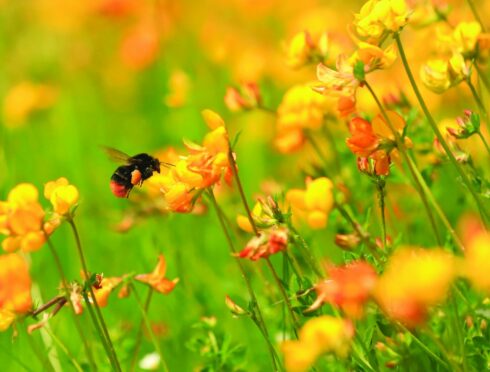The European Commission is planning to “pause” two of its environmental programmes that were due to be introduced as part of its Green Deal initiative.
These are around pesticide use and nature restoration, and it is now in top gear analysing and forecasting the impact of the Russian invasion of Ukraine.
It says that across the EU issues are more likely to be about affordability than availability.
But it has warned of the risk posed to market stability by countries in North Africa and the Middle East that traditionally relied on Russia and Ukraine for grain.
It has also warned that the greater threat may be yet to come, because Ukraine cannot secure seed to plant crops.
In Northern Ireland the agriculture minister, Edwin Poots, has warned that its crucial pig and poultry industries are 40% dependent on Ukrainian grain.
Meanwhile, the European Commission is taking a tough line over efforts to allow seed potato imports from the UK into the EU.
Potatoes
The European Parliament’s agriculture committee heard warnings from the trade body that represents the potato industry, Europat, that the ban was causing severe disruption to its supply chain.
It said the loss of high quality, high health status seed from Scotland was a particular issue, since regulations were imposed in January 2021 when Brexit was completed.
However in a tough response, the Commission’s DG Sante department said the regulation was necessary to protect the health status of European potatoes.
It rejected claims the UK or even parts of the UK could have a deal similar to Canada, where regulations are waived, claiming it was the UK’s choice to reject the EU offer of aligning with its agricultural and food standards.
The European Commission has also published the results of the biggest survey ever undertaken in Europe on the potential for selective breeding strategies to tackle varroa mite in honey bees.
This is a major factor in declining bee populations and the Commission report concludes that selective breeding strategies are potentially effective, but also potentially costly.
The report says bees are under pressure because of agricultural practices, pesticides and global warning, with varroa mite widespread and deadly for colonies it infects. The report found that some bees can develop defences against the mite and that this can be passed on to future generations.

